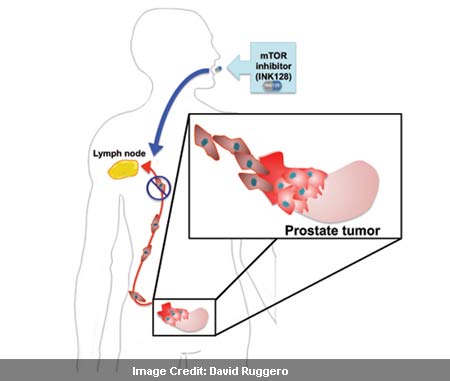The step towards understanding how a cancer advances in the body is crucial for developing effective treatment strategies. On this note, scientists at the University of California (UCSF) have revealed a mechanism related to defective functioning of the master regulator gene, which primarily leads to cancer metastasis.
This critical molecule namely mTOR has been the target of many therapies, but the outcomes did not seem to be beneficial. The findings point to a new drug for the treatment of prostate cancer, a disease which requires more therapeutic options.
The aforesaid molecule regulates the growth and division of cells. However, in case of cancers, mTOR apparently loses its balance and stimulates tumor cells to multiply and undergo metastasis. An experimental drug namely INK128, which is attained from a compound, was trialed in a set of mice with prostate cancer.
“While the experiments were primarily focused in prostate cancer, we believe this work is widely applicable in many tumor types because mTOR is a critical regulator of so many cancers,” explained first author Andrew Hsieh, MD, a clinical oncologist in the UCSF Department of Medicine, Division of Hematology/Oncology and a senior member of the Ruggero laboratory.
As per the observations, the mouse prototypes of human prostate cancer, which were treated with INK128, did not appear to undergo expansion. This drug also seemed to inhibit abnormal protein synthesis during high activity of mTOR . The scientists are hopeful that this drug could work effectively in human prostate cancer cells too.
This research is published in the journal, Nature.

